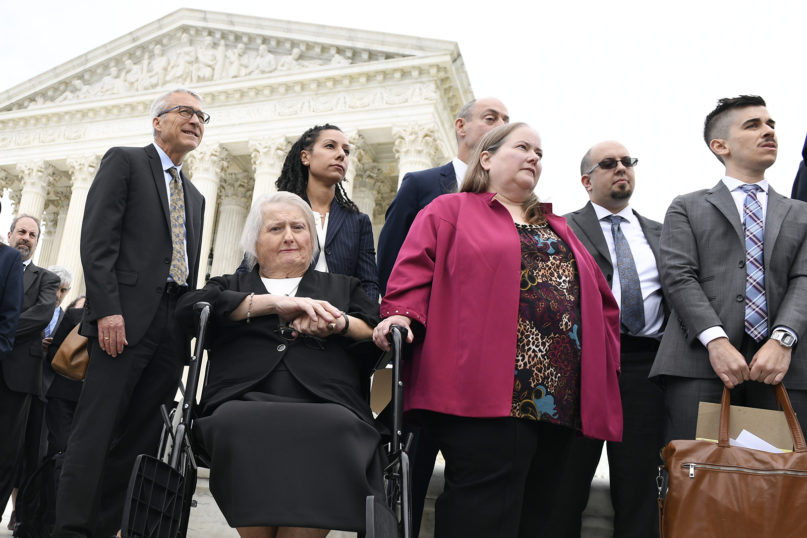(RNS) — Dissenting passionately from Monday’s Supreme Court’s decision in Bostock v. Clayton County, barring employment discrimination against LGBT people under Title VII of the Civil Rights Act, Justice Samuel Alito asserts that “the position that the Court now adopts will threaten freedom of religion.”
Will it?
Alito cites with approval friend-of-the-court briefs from religious bodies to the effect that “compelling a religious organization to employ individuals whose conduct flouts the tenets of the organization’s faith forces the group to communicate an objectionable message.”
While he acknowledges that under the “ministerial exception,” established by the Court in 2012, such compulsion may not apply to teachers in religious schools, he points to “other very visible school employees” who don’t qualify for the exception.
Alito also worries that the new ruling might undermine the ability of religious organizations to resist health insurance claims for gender reassignment surgery and be used as a cudgel against using gender-specific pronouns and expressing disapproval of same-sex relationships and gender reassignment.
Writing for the 6-3 majority, Justice Neil Gorsuch waved away such worries as “nothing new.” There are, he wrote, many protections for religious free exercise on the books now, including the Religious Freedom Restoration Act “as a kind of super statute” that “might supersede Title VII’s commands in appropriate cases.” Outstanding religious liberty issues are “questions for future cases.”
In a separate dissent, Justice Brett Kavanaugh took an identically relaxed view of the religious implications, noting the range of opportunities for protecting religious freedom cited in the majority opinion. Kavanaugh’s own objection to the Bostock decision was merely that the Court overreached in the face of Congress’ failure to pass statutory language including LGBT people under Title VII.
Hewing to this separation-of-powers argument, Kavanaugh went far out of his way to acknowledge that, with the court’s decision, gays and lesbians had achieved an “important victory”:
Millions of gay and lesbian Americans have worked hard for many decades to achieve equal treatment in fact and in law. They have exhibited extraordinary vision, tenacity, and grit — battling often steep odds in the legislative and judicial arenas, not to mention in their daily lives. They have advanced powerful policy arguments and can take pride in today’s result.
Which is exactly the point. The Court may well decide this month — in Our Lady of Guadalupe School v. Agnes Morrissey-Berru — that the ministerial exception has the broadest of reaches, even going so far as to say that any employee of a religious organization may be considered a minister insofar as they manifest in their lives an example to the rest of their community.
But as it did most recently with same-sex marriage, the Court has set its critical seal of approval on an important new social norm. Americans cannot be denied employment because of their sexual orientation or their self-determined gender identity.
On those grounds, this was a 7-2 opinion, with Kavanaugh joining the majority in embracing the new norm even as he refused to go along with its judicial establishment. No wonder he is now, along with Gorsuch and Chief Justice John Roberts, the object of many social conservatives’ vituperative dismay.
So much for those conservatives’ belief that Trump’s Federalist Society judges, like King Canute, will order the incoming tide to stop at their feet. The tide of equality for LGBT people in American society is ineluctable. Get over it.






